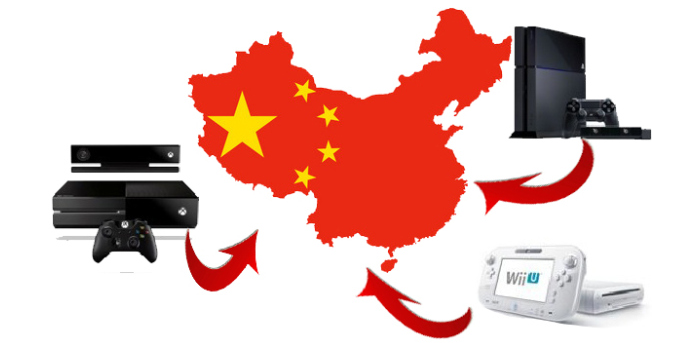Video Game Console Ban in China Lifted
|
The video game console ban in China was lifted in June, thanks to the Ministry of Culture. Although unfortunately the Chinese will be unable to play with downloadable casino software, they will be, however, able to play with awesome video consoles. Of course, we have no idea what it’s like, being banned from playing your Xbox One, for example. Imagine wanting to buy a brand new PlayStation only to find that shops aren’t selling them because the production and sales of these gaming devices is banned. Thankfully, this has ended. At the end of June, the Ministry of Culture lifted this strict ban completely.
According to LimeGreen IP News, the Ministry of Culture is currently reviewing bills and will be in the future. “To provide further guidance over the content review process as regulated under this notice, MOC in the meantime published the Administrative Measures for Content Review of Video Game Consoles (“Administrative Measures”) as an exhibit of the notice,” said LimeGreen IP News. This isn’t the first move the Ministry has done so far in this area, either: in April 2014, they also erased the ban in the Shanghai Free-Trade Zone, a step that made it possible for companies like Microsoft and Sony to start launching the sales of their consoles.
Since April 2014, many steps were taken to loosen the console ban in ChinaFrom April 2014, the Ministry of Culture has given permission for companies to distribute 31 console games. Predictions for the future expansion of the video console gaming market in China are based on many factors. The most important being that just like the Chinese have been excluded from the social gambling market, they also were banned from the usage of video game consoles. The problem here is that they have gotten used to not having consoles in their homes, and have developed other gaming habits. The main question here is: can they get so hooked on consoles so it’ll be worth for console companies to put a lot of effort into selling in China?
According to LimeGreen IP News, in the United States, 51% of households have at least one video game console in their homes. The top three console-manufacturers are Sony, Microsoft and Nintendo. Here, again, the issue is that with the appearance and growing popularity of smart phones and tablets, the usage of and the demand for gaming consoles have fallen. Now, if that happened even in the United States, what will happen in China, where these consoles were banned? On the other hand, we shouldn’t disregard the fact that there is still an audience who want the complete gaming experience, and with better graphics and a bigger screen (even with louder sound effects,) playing on a console provides a different experience.
The key is to find what Chinese gamers like
With the video game console ban in China lifted, the sky is the limit for gaming software developers. Unfortunately, for the time being, gambling software are not a part of the plan, but there is a huge market that game providers could target. The only thing they have to do is find what Chinese gamers are looking for. As LimeGreen IP News reports, “The total revenue of the Chinese game industry amounted to RMB 123 billion (USD 20.5 billion) in 2013. This is about 4 times larger than China’s movie box office receipts for the same year. What’s more, Chinese gaming revenue increased in 2014 by 23 per cent, totalling approximately RMB 152 billion (USD 25 billion) in 2014.”
We can all see that there is money in the gaming industry in China and that it does have room to grow, especially with the ban erased. But how big can it get? According to LimeGreen IP News, there is a fierce competition with other games, like the one for mobile. Furthermore, those who like spending time on smartphones have gotten used to small screens and the graphics, it is not entirely sure that they will go for consoles. Then there are strict regulations, coordinated by moral and religious codes. To say the least, gaming console manufacturers who will step into the Chinese market have a lot of issues to figure out. |











